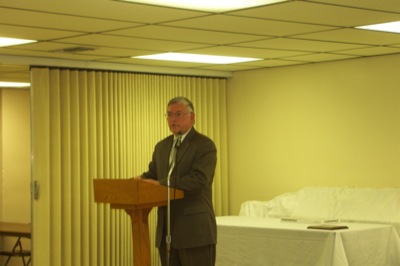Monday, March 12th, 2007
Council may seek loan
By Timothy Cox
Celina City Council members will be asked at tonight's meeting to authorize participation in an EPA-sponsored loan program to pay for a proposed addition to the city's water treatment plant.
The city plans to spend up to $3.5 million on granular activated carbon (GAC) treatment technology and to update some vintage 1960s-era equipment at the water plant. The GAC treatment is necessary to comply with an EPA mandate to lower the levels of trihalomethanes (THM) in the city's water.
The city has a $750,000 grant from the federal government, but the balance of the project will have to be financed, Safety-Service Director Jeff Hazel said. The EPA's Water Supply Revolving Loan Account likely will offer the city the most attractive interest rate, he said. The loan would be repaid through planned increases in water rates.
The state fund currently has an interest rate of 3.25 percent. The rate is reviewed quarterly but has been at 3.25 percent for two consecutive years, Hazel said.
"This will almost definitely be the least expensive way to go," Hazel said.
The loan would be repaid over a 20-year term. The ordinance city council members will be asked to consider tonight allows city participation in the loan program only if the interest rate is 4 percent or lower.
The exact terms of the loan agreement won't be worked out until the city has a firmer construction estimate. Engineers still are finalizing plans for the GAC addition and other possible upgrades to the plant, Hazel said.
After those numbers are in, city officials can finalize construction plans and determine how much water rates must be raised. Sawvel 7 Associates is working on a separate water rate study for the city, Hazel said.
City officials last fall raised water rates to cover existing expenses and the anticipated $250,000 to $300,000 in operating costs for the new GAC facility. Construction costs were not included in that rate increase because city officials don't have firm estimates.
The GAC system will use carbon material to absorb organic material from the city's water. Organic matter in the water drawn from Grand Lake reacts with chlorine added to the water and over time forms THMs, which have been linked to some forms of cancer and other illnesses in laboratory tests.
The city has until November to meet the EPA's deadline, but city officials have admitted they likely will miss it. The EPA's original findings and orders called for potential daily fines of up to $25,000 for exceeding the deadline.





